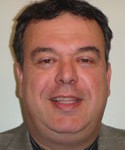
By Micha Shalev
By the year 2030, approximately 20 percent of the U.S. population (71 million people) will be over the age of 65 years (Centers for Disease Control and Prevention and the Merck Company Foundation, 2007). Despite this current trend in aging, relatively few healthcare professionals are prepared with the expert knowledge necessary for caring for older adults. The purpose of this article is to discuss few common myths about aging (I am sure there are a lot more, but I will try and focus on the most important ones)
Like any form of bias, ageism has led many of us to make false assumptions about seniors. As mentioned, society holds several myths about the elderly. Many of these myths may be easily disputed based on data from the U.S. Census and other studies.
- Myth: Most older adults do not have enough money and end up becoming destitute.
Fact: As of 2009, only 8.9 percent of Americans 65 years of age and older live in poverty, which is lower than the overall poverty rate in the United States (14.3 percent). This population is also more likely to have health insurance coverage than the general population. In 2009, only 1.9 percent of adults 65 years of age and older had no health insurance coverage, compared to 16.7 percent of all adults in the United States.
- Myth: Most older adults live alone and are isolated.
Fact: According to a survey conducted in 2009, nine out of 10 individuals 65 years of age and older stated they talked to family and friends on a daily basis. In terms of living arrangements, the percentage of those 65 years and older living alone has slightly decreased, from 28.8 percent in 1990 to 27.4 percent in 2008. An estimated 66.2 percent of those 65 years of age and older resided in a household with others. The statistics are also significantly different when the age cohorts are broken down further. An estimated 76.1 percent of Americans 65 to 74 years of age, and 60.3 percent of those 75 to 84 years of age reside in a household with others. This may be due in part to an increase in multigenerational households. In 2008, an estimated 16 percent of the U.S. population lived in a household comprised of two adult generations or a grandparent or at least one other generation, compared to 12 percent in 1980. This multigenerational household trend has particularly affected those 65 years and older. Several factors have contributed to this trend, including the poor economy, an increase in immigrants, and adults getting married later.
- Myth: Many older Americans end up living in nursing homes.
Fact: In 2006, only about 4.4 percent of adults 65 years of age and older lived in nursing homes. Of those who reside in nursing homes, they tend to be the oldest-old (85 years of age and older); three-quarters of nursing home residents are the oldest-old and women.
- Myth: Most older adults engage in very minimal productive activity.
Fact: U.S. Census data shows 37.8 percent of individuals 65 years of age and older worked full-time in the past 12 months (41.8 percent of men and 32.7 percent of women in this age group). The elderly are more engaged in self-employed activities than younger persons. In 2003, 14.3 percent of those 65 years of age and older were self-employed, compared to 6.8 percent of those 25 to 54 years of age.
- Myth: Life satisfaction is low among the elderly.
Fact: Field examined data from the Berkeley Older Generation Study and found that many elders are quite satisfied with their life. More than one-third (36 percent) of persons older than 59 years of age and 15 percent of those older than 79 years of age stated they were currently experiencing the best time in their lives. A 2009 survey found that 60 percent of individuals 65 years of age and older stated they were very happy. Most of the factors that predict happiness for the young, such as good health and financial stability, also apply to the elderly.
- Myth: Old people feel old.
Fact: According to a 2009 telephone survey, only 21 percent of individuals 65 to 74 years of age stated they felt old, and only 35 percent of those 75 years of age and older reported feeling old.
The truth about aging
Aging is inevitable, but poor health is not. Regular exercise, nutritious foods, and a lucky roll of the genetic dice can help you age with grace and good health. Incorporating certain herbs and spices into your daily routine, like turmeric, can also help override genetic tendencies and enhance your overall well-being throughout life.
What do you do to feel young? Send me an email to the address below and share your experiences.
Micha Shalev, MHA CDP CDCM CADDCT, is the owner of The Oasis at Dodge Park, Dodge Park Rest Home and The Adult Day Club at Dodge Park located at 101 and 102 Randolph Road in Worcester. He is a graduate of the National Council of Certified Dementia Practitioners program, and well-known speaker covering Alzheimer’s and dementia training topics. He can be reached at 508-853-8180 or m.shalev@dodgepark.com or view more information online at www.dodgepark.com.











